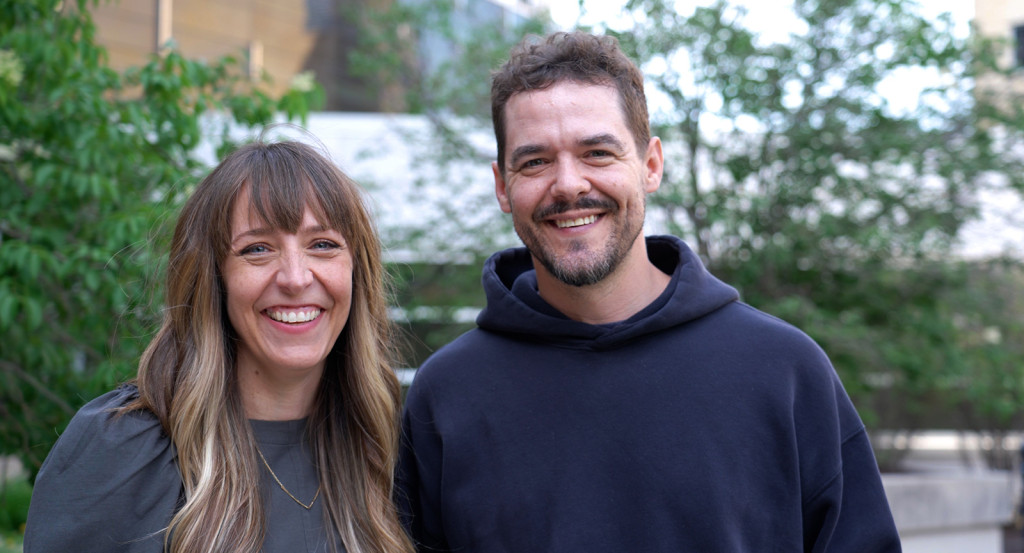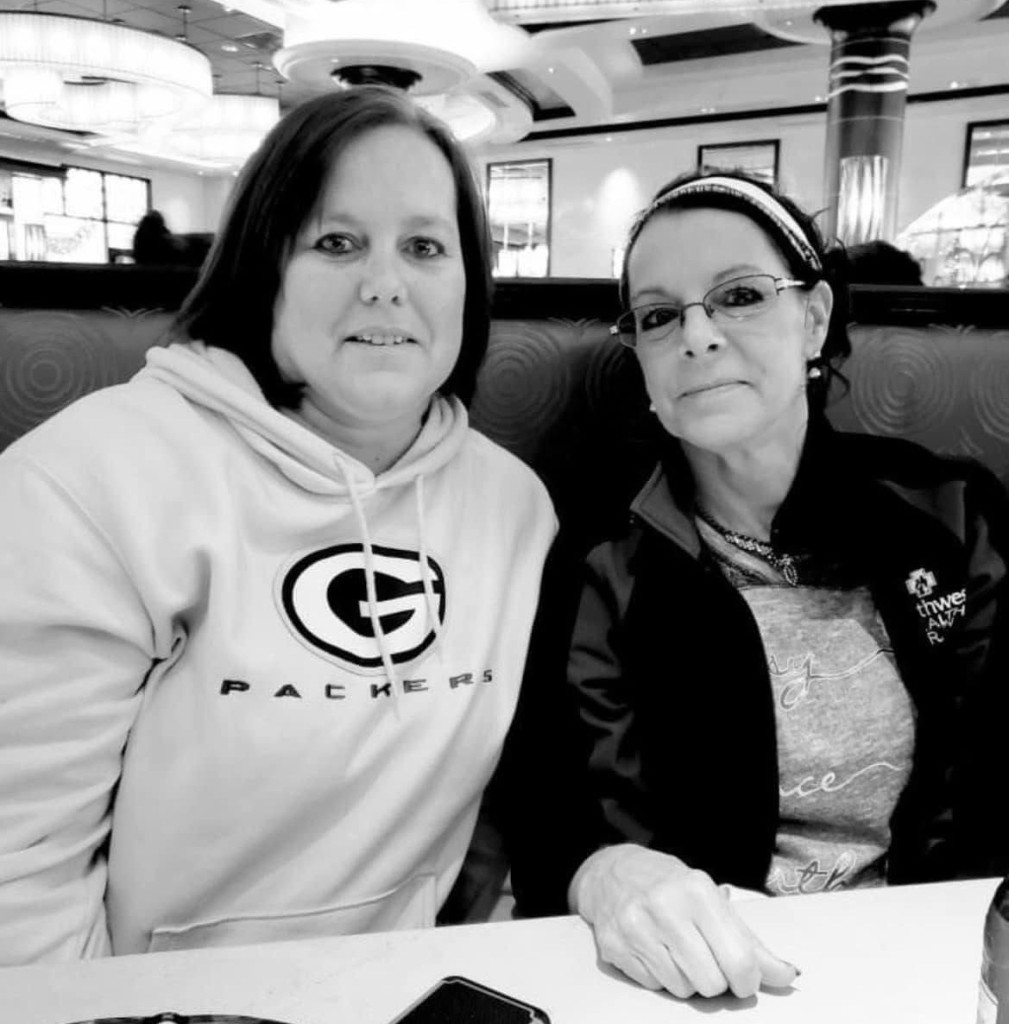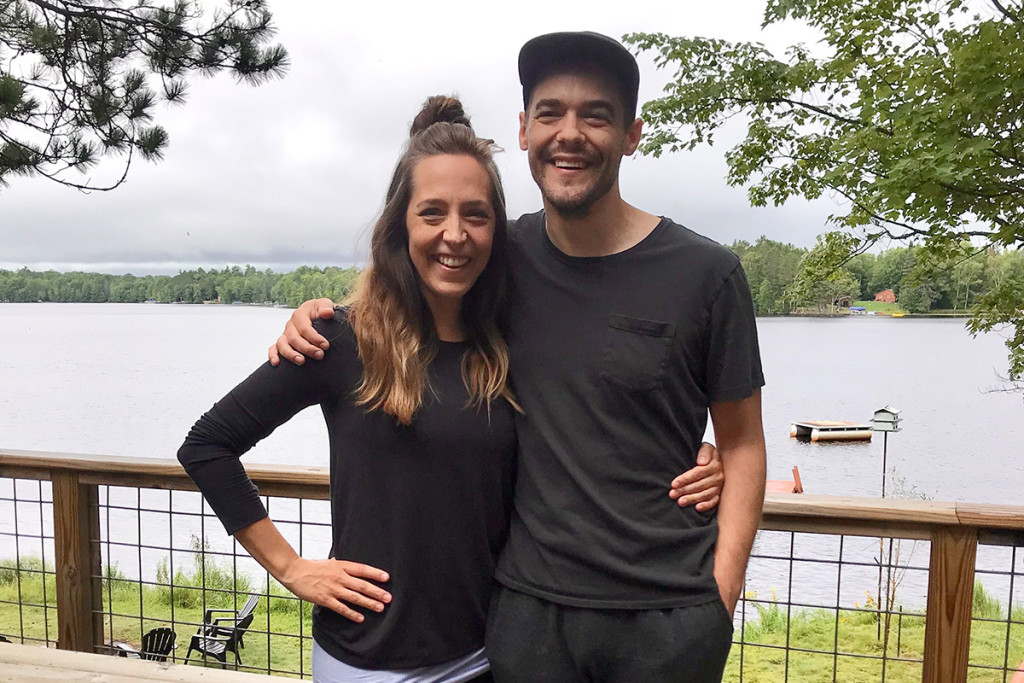
A new kidney — free of daily meds
Thanks to a cutting-edge clinical trial at UW–Madison, transplant patients are returning to a healthy life without anti-rejection drugs.
Shawn Wiederhoeft is a pretty regular guy in his 30s. The Madison native works as a video game developer and maintains an active lifestyle. He’s healthy — in the best shape of his life — and regularly spends time with friends and family in southern Wisconsin.
But it wasn’t always a given that Wiederhoeft would be able to participate in life so fully. In fact, “Uncle Shawn,” as he’s known to family, is healthy today thanks in large part to a new kidney he received in 2020 from his sister, Meagan Hahn, of Wauwatosa.
The transplanted kidney has given Wiederhoeft a new lease on life, and because he and his sister chose to participate in a cutting-edge clinical trial at the University of Wisconsin School of Medicine and Public Health, he’s also able to live without the need for anti-rejection medications.
With no daily medications and only occasional medical checkups, Wiederhoeft says he sometimes almost forgets he’s the recipient of a kidney transplant.
“I have to consciously remind myself that there’s a third kidney in here,” he says. “I feel healthier than I’ve ever been.”
Wiederhoeft’s remarkable journey from serious illness to a medication-free recovery is just one of a growing number of living kidney transplant success stories that an international team of physicians and researchers reported in the July issue of the American Journal of Transplantation.
Led by UW–Madison surgery professor Dr. Dixon Kaufman, who directs the UW Health Transplant Center, the team shared results of a Phase 3 clinical trial that evaluated the effectiveness and safety of a living kidney transplant tolerance protocol that also includes the transplantation of certain stem cells from the kidney donor to the transplant recipient.
These stem cells are injected into the recipient several days after transplantation and take up residence in bone marrow, where they divide and multiply into immune cells that share the genes of the donated organ. The goal is to keep the recipient’s immune system from attacking the new organ, which it would otherwise recognize as a threat.
“This procedure doesn’t replace the immune system, but it complements it with around 5 to 10% of the immune system being from the donor,” says Kaufman.
In doing so, the new method removes the need for costly anti-rejection medications that severely suppress the recipient’s immune system, carrying a whole host of lifelong side effects.
The prospect of participating in a clinical trial that carried such a possibility was surreal for some of the study’s initial participants, including Wiederhoeft and Hahn.
“It felt straight out of a science fiction novel,” says Wiederhoeft.

The feeling of entering uncharted territory was even more pronounced for the trial’s first participants, sisters Barb Okey and Brenda Quale, both of Platteville.
“To say I was nervous — that’s an understatement,” says Okey, who received one of Quale’s kidneys followed by an infusion of her stem cells in 2018. Within months of the procedure, as hoped, tests showed that Quale’s cells had begun multiplying and circulating in Okey’s blood, and Okey was eventually weaned off her anti-rejection medications. Today, the only medication Okey takes is to help control her blood pressure.
“It’s amazing,” Okey says. “To have an opportunity to continue life with a new kidney and without taking medications is pretty fabulous.”
Okey and Wiederhoeft are among the small group of kidney recipients who can forgo anti-rejection medications thanks to UW–Madison’s clinical trial, but there are plans to expand eligibility for the procedure.
The initial phase required donors and recipients to be siblings and a “perfect,” or identical, match, meaning they have compatible blood types and other physiological compatibilities. Kaufman says that the initial trial’s success means that eligibility could soon be extended to living donor transplants of non-identical matches and eventually to recipients of organs from deceased donors.
Kaufman described the trial’s positive results as “immensely gratifying” and a testament to the value of long-term investments in research.
Indeed, before the procedure could be attempted in human patients, researchers at the Wisconsin National Primate Research Center and elsewhere spent years testing its safety and effectiveness in non-human primates. In 2023, the team led by Kaufman reported promising results from its latest primate studies that could pave the way for expanding the procedure to non-identical transplant pairs.
The studies that enabled this clinical trial received substantial support over the years from the National Institutes of Health (NIH). Kaufman credits UW–Madison’s proven track record of executing complex biomedical research for the sustained federal investment.
“The clinical and research environments at UW are outstanding” he says. “I’ve been to other programs, trained at other programs, and been faculty at other programs, and the unique things that make the ability to do complicated clinical trials like this successful at the University of Wisconsin are the strong collaborative culture and fantastic resources. We’ve got a history and a tradition of advancing the field in innovative ways for the benefit of many. We want to keep reaching higher and keep making those advances.”
While the recognition and support from NIH and other funding agencies have underpinned the trial’s success, Kaufman says it’s the patients and donors who are willing to participate in new and potentially risky trials who are ultimately responsible for helping to advance the field.
“Getting [the patients] back on the road to living a happy and fulfilling life is really what this is all about,” he says.

For Hahn, who felt compelled and grateful to participate in the trial as Wiederhoeft’s donor, the results have been immeasurably positive.
“To be able to have Uncle Shawn there for all the family events, and for it to be the most normal version of him — the most healthy version of him — I have to remind myself that this all happened and that this isn’t normal for so many people. But for us, it’s quite a blessing.” ■
Dixon Kaufman, MD, PhD, is the Ray D. Owen endowed professor in the UW–Madison Department of Surgery.
The research that supported this clinical trial occurred over 12 years, first in non-human primates before human trials, with more than $20 million in funding provided by the National Institutes of Health over that period (U01AI102456, MSN150727, T32AI25231, U54). NIH also supports the Wisconsin National Primate Research Center (P51OD011106). The Phase 3 clinical trial described here was sponsored by Medeor Therapeutics (MDR-101) in association with Stanford University.



